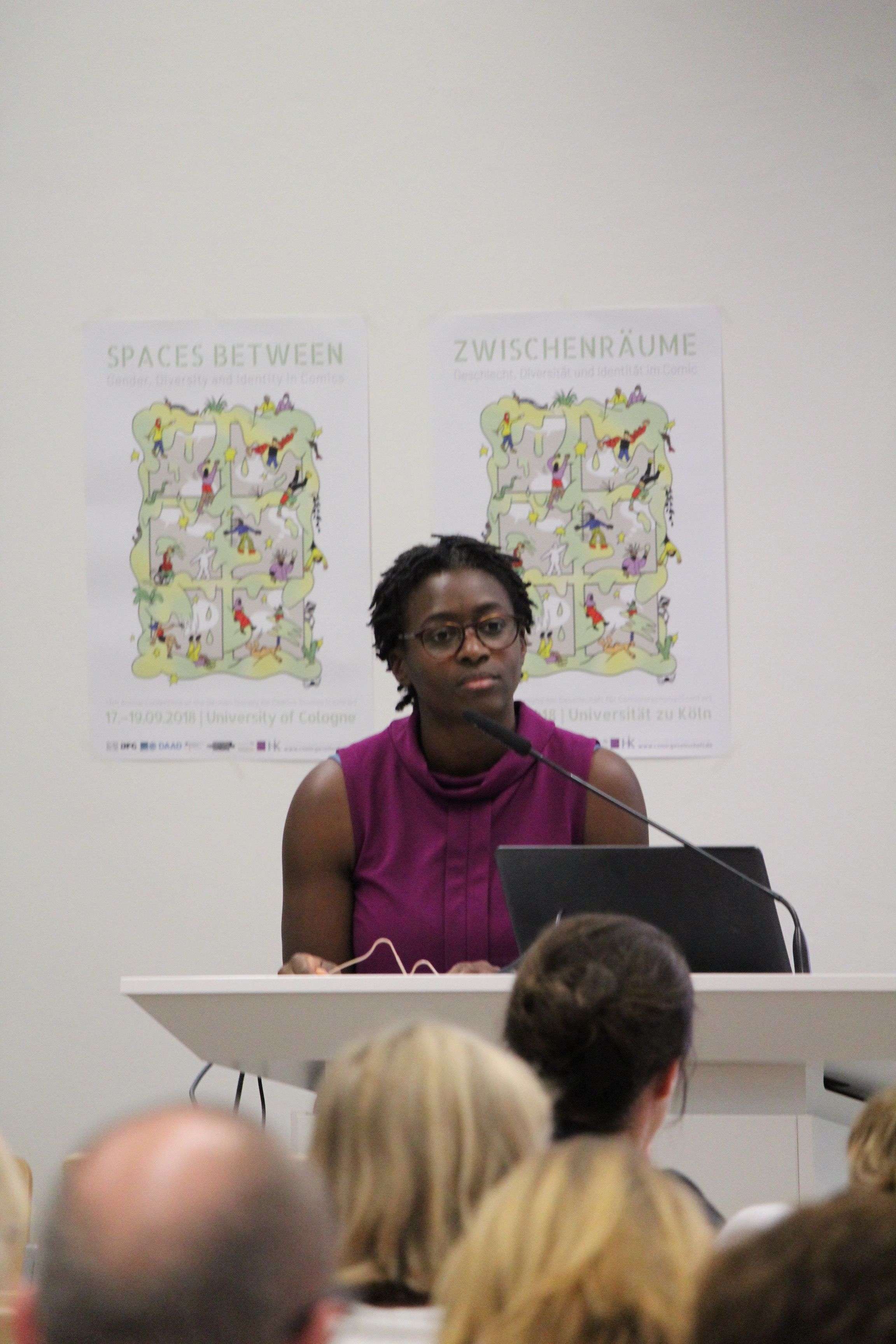Suspicious Spiral: Autofiction and Black German Subjectivity in Olivia Wenzel’s 1000 Serpentinen Angst
Monday, October 26, 2020
1-2:30 pm Eastern Time (US) / 7-8:30 pm German time
Zoom Webinar
You can watch a recording of the complete event by clicking the button above.
About the Event
 At the start of this year, Black German author Olivia Wenzel published her debut novel, 1000 Serpentinen Angst (1000 Coils of Fear) to the enthusiastic reception of German critics.
At the start of this year, Black German author Olivia Wenzel published her debut novel, 1000 Serpentinen Angst (1000 Coils of Fear) to the enthusiastic reception of German critics.
The novel is a work of autofiction that draws heavily on Wenzel’s own life experiences as a Black German woman who grew up in East Germany. Though the text is written in first person, we never get a complete sense of who the narrator is; in part because much of the text is written as a conversation between the narrator and an unnamed interlocutor. It is not always clear who the interlocutor is, if it is the same person throughout and what their relationship is to the narrator. What adds to the confusion of the text is that the narrative is not necessarily organized in a linear fashion; rather we are given snapshots of the narrator’s life which revolve around particular themes, people and trauma.
Priscilla Layne believes that Wenzel’s choice of this mode poses an important opportunity to reflect on what makes Black German literature uniquely different compared to literature by white German authors. Over the years, scholars have identified several tropes in Black German literature, from autobiographical aspects and the influence of African American culture to an approach to race that centers Black experiences and unveils the constructed normativity of whiteness. 1000 Serpentinen Angst shares all of these elements with past examples of Black German literature, but what sets it apart Wenzel’s decision to use an autofictional mode.
If 1000 Serpentinen Angst were autobiographical, readers would expect some kind of goal – some culmination to which all of the narrator’s experiences have led up to. But as a work of autofiction, Wenzel’s novel does not grant us this kind of relief. Because for a Black person in Germany, racial trauma is ongoing and ever-present. The goal is simply to live.
About the Speaker
 Priscilla Layne is Associate Professor of German and Adjunct Associate Professor of African, African American and Diaspora Studies at the University of North Carolina at Chapel Hill. She received her PhD from the University of California at Berkeley. Her research and teaching draws on postcolonial studies, gender studies and critical race theory to address topics like representations of blackness in literature and film, rebellion, and the concept of the Other in science fiction/fantasy. She is the author of White Rebels in Black: German Appropriation of African American Culture and her current book project is on Afro-German Afrofuturism.
Priscilla Layne is Associate Professor of German and Adjunct Associate Professor of African, African American and Diaspora Studies at the University of North Carolina at Chapel Hill. She received her PhD from the University of California at Berkeley. Her research and teaching draws on postcolonial studies, gender studies and critical race theory to address topics like representations of blackness in literature and film, rebellion, and the concept of the Other in science fiction/fantasy. She is the author of White Rebels in Black: German Appropriation of African American Culture and her current book project is on Afro-German Afrofuturism.